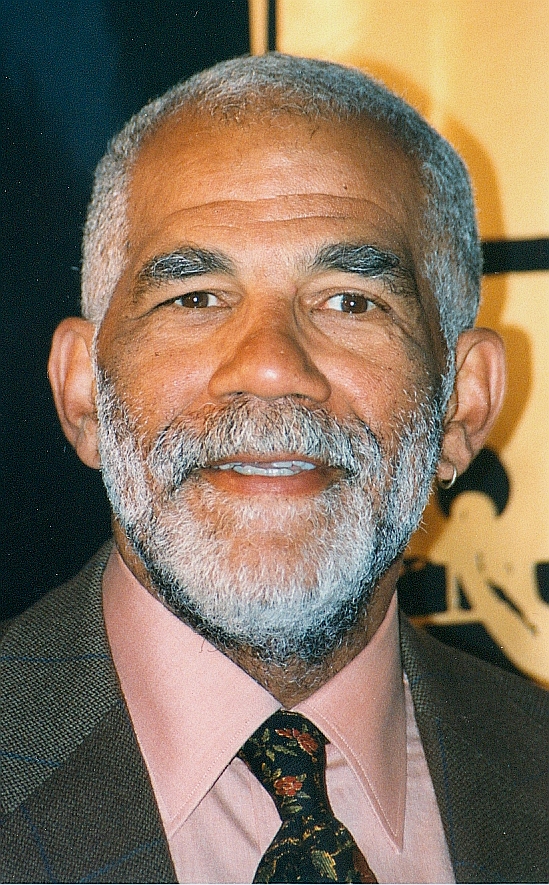The only thing I’d ever done with news was to read copy sitting at the microphone in the studio.
Meaning of the quote
This quote is from the American journalist Ed Bradley. It means that the only thing he had ever done with news was to sit in a studio and read the words that were written for him to say into a microphone. He didn't do any of the other work involved in reporting the news, like going out and finding information or writing the news stories himself. He just read the words that others had written.

About Ed Bradley
Ed Bradley was an acclaimed American journalist who reported for CBS News and 60 Minutes. He covered a wide range of stories, from the Vietnam War to the AIDS epidemic in Africa, and won numerous awards for his impactful and insightful journalism.
Tags
More quotes from Ed Bradley
I had never been out covering a story, but boy, was that fun.
American journalist (1941-2006)
I always felt more emotionally attached to Cambodia than I did to Vietnam.
American journalist (1941-2006)
That’s when I hit the ground. So in the instant that that round landed and blew me in the air, I had those separate and distinct thoughts. The guy who was standing right next to where I had been standing had a hole in his back I could put my fist into.
American journalist (1941-2006)
The only thing I’d ever done with news was to read copy sitting at the microphone in the studio.
American journalist (1941-2006)
I’d watch my father get up at 5 o’clock and go down to the Eastern Market in Detroit to do the shopping for his restaurant, and get that business going and then go out on his vending machine business.
American journalist (1941-2006)
My uncle was a hero, Lewis Roundtree. He was not even related to me really, but he was always called my uncle. He was like a father to me. I was closer to him than I was my father.
American journalist (1941-2006)
And I always found that the harder I worked, the better my luck was, because I was prepared for that.
American journalist (1941-2006)
There was no one around me who didn’t work hard.
American journalist (1941-2006)
I had no experience with broadcasting basketball games, so I took a tape recorder and went to a playground where there was a summer league, and I stood up in the top of the stands and I called the game.
American journalist (1941-2006)
You know, I think I still have a sense that no matter what you do, no matter what you achieve, no matter how much success you have, no matter how much money you have, relationships are important.
American journalist (1941-2006)
I will not go into a story unprepared. I will do my homework, and that’s something I learned at an early age.
American journalist (1941-2006)
I would listen to how they told the story, to what elements they used, to how it sounded, and that’s who I patterned myself after, the people who were on CBS News.
American journalist (1941-2006)
The Paris peace talks kept a roof over my head and food on the table and clothes on my back because if something was said going in or coming out, I had the rent for the month.
American journalist (1941-2006)
I knew that God put me on this earth to be on the radio.
American journalist (1941-2006)
You can work hard to sharpen your talent, to get better at whatever it is that you do, and I think that’s what it comes back to.
American journalist (1941-2006)
I did anything that would get me on the air.
American journalist (1941-2006)
I made the decision to come back to New York, quit my job and move to Paris.
American journalist (1941-2006)
Professionally, I remember Cronkite as a kid growing up, and more so for me, the importance of Cronkite was not him sitting there at the anchor desk, but him out there doing things.
American journalist (1941-2006)
But you know, I always said that no one else on my block was on the radio, and it was fun.
American journalist (1941-2006)
Then I learned how to do wraparounds and things like that. I had no experience.
American journalist (1941-2006)
Be prepared, work hard, and hope for a little luck. Recognize that the harder you work and the better prepared you are, the more luck you might have.
American journalist (1941-2006)
And I realized that there was no sports reporter, so I started covering sporting events.
American journalist (1941-2006)
My mother worked in factories, worked as a domestic, worked in a restaurant, always had a second job.
American journalist (1941-2006)
I had a lot of fun in Cambodia, much more so in Cambodia than Vietnam.
American journalist (1941-2006)
I stayed three weeks in Paris, fell in love with the city, and decided that I was born to live in Paris.
American journalist (1941-2006)
Probably my mother. She was a very compassionate woman, and always kept me on my feet. And I think part of it is just the way you are, the way you’re raised. And she had the responsibility for raising me.
American journalist (1941-2006)
The people in your life are important. Meaningful relationships with those people are very important.
American journalist (1941-2006)
So I just got on the phone and the engineer just patched me in and I did reports. I’d get a community leader and bring him to the phone, call up the station and do an interview over the phone with the guy.
American journalist (1941-2006)
I taught sixth grade for three and a half years.
American journalist (1941-2006)